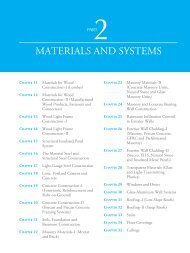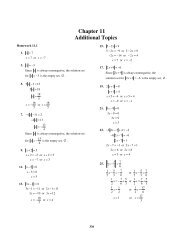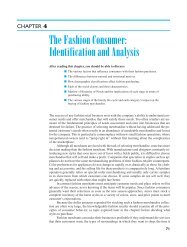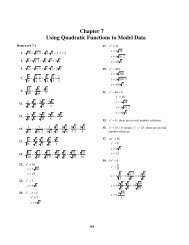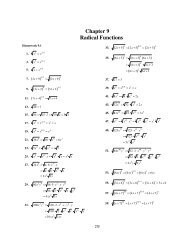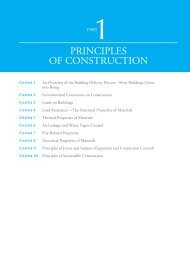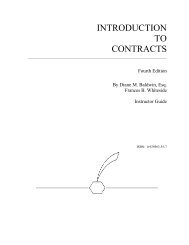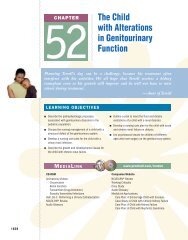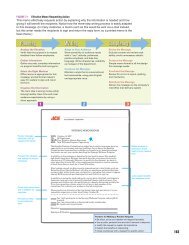Create successful ePaper yourself
Turn your PDF publications into a flip-book with our unique Google optimized e-Paper software.
completely ignored by Jeanette until Donald enters the VA<br />
hospital.<br />
Rodney is a prototypical child. He is desperate for a<br />
father figure in his life and is obviously very impressionable.<br />
He may be the most sympathetic character in the story, but for<br />
all the wrong reasons. Naturally we sympathize with his<br />
situation;he's poor, he's fatherless, and he fears being<br />
abandoned. The ritual of hiding from Donald every time his<br />
father returns becomes an affirmation of the fact that his<br />
father will not abandon him. After all, Rodney waits until his<br />
father searches all over the house for him, to rush out and hug<br />
his father's knees (656). The boy is impressionable enough to<br />
believe that his father is a "messenger form the devil" not only<br />
because his grandmother says so, but because he recognizes<br />
something is wrong with his father, possibly because Jeanette<br />
constantly points out the violent, disturbing nature of the "Big<br />
Bertha Stories." His "nightmares" are interpreted by Jeanette<br />
as a result of Donald's stories, but in reality they are caused<br />
by his unstable family life.<br />
Donald substitutes myth-making for affection. Big Bertha<br />
is first a way for him to connect with his son and a method of<br />
coping with the deterioration of his family life. He tells the<br />
stories as a way to get his son to forgive him and as<br />
entertainment. The myths that he creates around Big Bertha help



